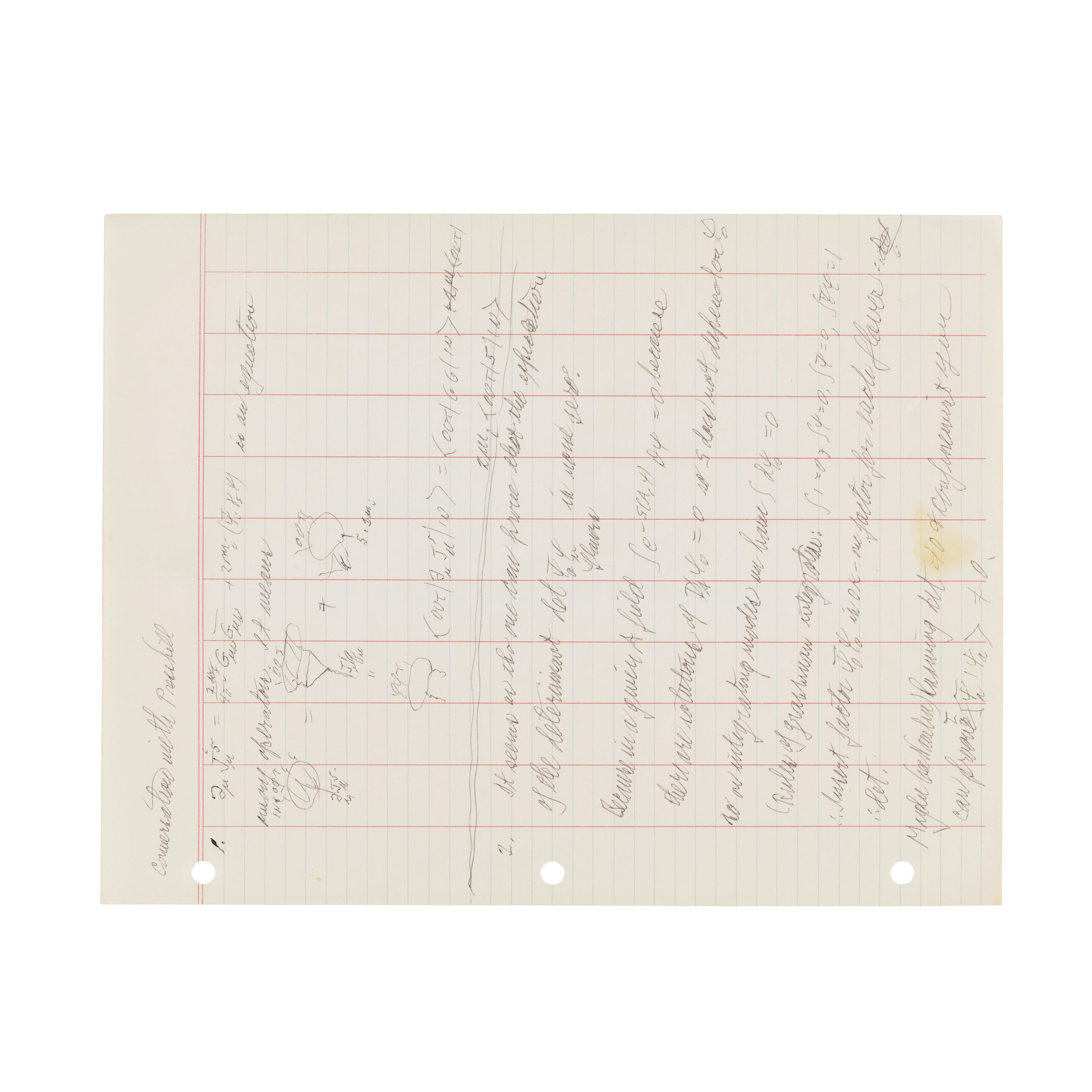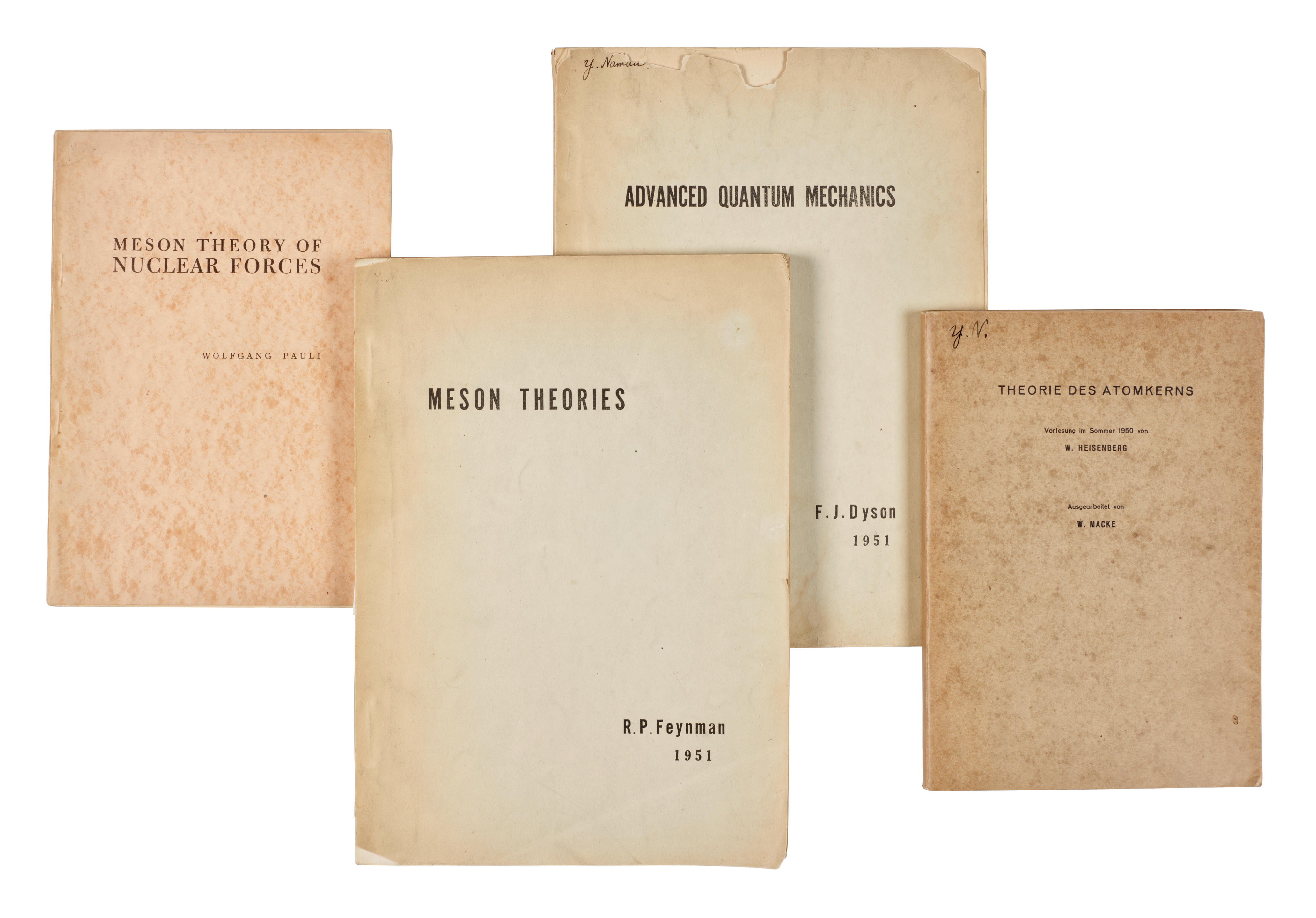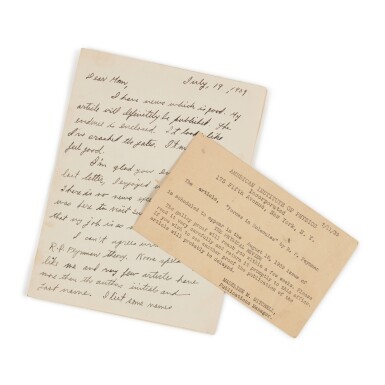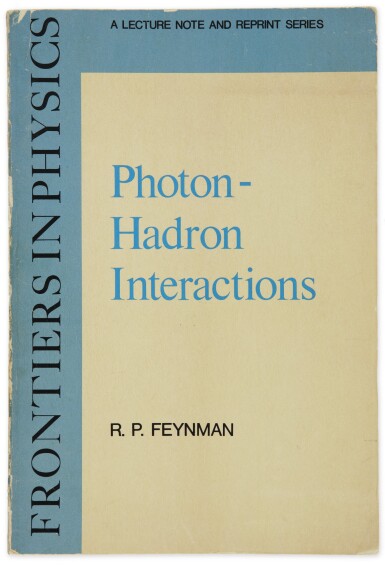R. P. Feynman, Theory of Fundamental Processes, owners inscription to inside of cover for 'Jack H Waggoner', published 1961 New York,
Published in 1961 by W. A. Benjamin, Theory of Fundamental Processes is one of the key works by Nobel Prize-winning physicist Richard P. Feynman. This book, along with Quantum Electrodynamics (1961), distills his renowned Caltech lectures on quantum mechanics and particle interactions into an accessible yet profound exploration of fundamental physics. The text delves into quantum field theory, path integrals, and particle interactions, offering insights that remain foundational in modern theoretical physics. As with many of Feynman’s works, its clarity and originality make it both an essential reference for physicists and a sought-after collectible for those interested in the history of science.
Richard P. Feynman (1918–1988), was one of the most influential physicists of the 20th century, renowned for his contributions to quantum mechanics, quantum electrodynamics (QED), and particle physics. Born in New York in 1918, he demonstrated exceptional mathematical ability from an early age and later earned his PhD from Princeton University. During World War II, he worked on the Manhattan Project, developing atomic weaponry, but later focused on theoretical physics. His work on QED earned him the 1965 Nobel Prize in Physics, alongside Julian Schwinger and Sin-Itiro Tomonaga.
Feynman’s brilliance extended beyond research—he was a charismatic lecturer and educator, making complex topics accessible to students and the public alike. His Feynman Lectures on Physics remain essential reading for aspiring physicists. Later in life, he played a crucial role in investigating the Challenger disaster in 1986. A passionate thinker, bongo player, and painter, Feynman left a lasting legacy, influencing generations of scientists with his curiosity and unconventional approach to problem-solving.
R. P. Feynman, Theory of Fundamental Processes, owners inscription to inside of cover for 'Jack H Waggoner', published 1961 New York,
Published in 1961 by W. A. Benjamin, Theory of Fundamental Processes is one of the key works by Nobel Prize-winning physicist Richard P. Feynman. This book, along with Quantum Electrodynamics (1961), distills his renowned Caltech lectures on quantum mechanics and particle interactions into an accessible yet profound exploration of fundamental physics. The text delves into quantum field theory, path integrals, and particle interactions, offering insights that remain foundational in modern theoretical physics. As with many of Feynman’s works, its clarity and originality make it both an essential reference for physicists and a sought-after collectible for those interested in the history of science.
Richard P. Feynman (1918–1988), was one of the most influential physicists of the 20th century, renowned for his contributions to quantum mechanics, quantum electrodynamics (QED), and particle physics. Born in New York in 1918, he demonstrated exceptional mathematical ability from an early age and later earned his PhD from Princeton University. During World War II, he worked on the Manhattan Project, developing atomic weaponry, but later focused on theoretical physics. His work on QED earned him the 1965 Nobel Prize in Physics, alongside Julian Schwinger and Sin-Itiro Tomonaga.
Feynman’s brilliance extended beyond research—he was a charismatic lecturer and educator, making complex topics accessible to students and the public alike. His Feynman Lectures on Physics remain essential reading for aspiring physicists. Later in life, he played a crucial role in investigating the Challenger disaster in 1986. A passionate thinker, bongo player, and painter, Feynman left a lasting legacy, influencing generations of scientists with his curiosity and unconventional approach to problem-solving.










.jpg)




Testen Sie LotSearch und seine Premium-Features 7 Tage - ohne Kosten!
Lassen Sie sich automatisch über neue Objekte in kommenden Auktionen benachrichtigen.
Suchauftrag anlegen